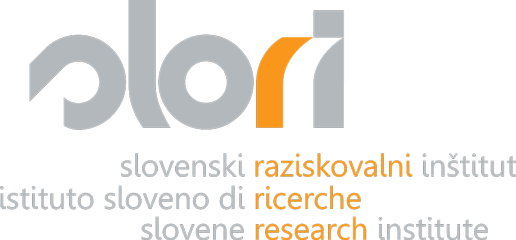The Institute for Slovenian Migration at the Research Centre of the Slovene Academy of Sciences and Arts, the Institute for Ethnic Studies and Urad Republike Slovenije za Slovence v zamejstvu in po svetu organised the international conference “Generational Diversity as a Challenge for Emigrant and Overseas Communities in the Perspective of Comparison”, which took place on 27 and 28 June 2011 in the Research Centre of the Slovene Academy of Sciences and Arts (ZRS SAZU) in Ljubljana. The conference was attended by: dr. Milan Bufon (as moderator), dr. Suzana Pertot (with the lecture “Older and younger generations of parents and children’s identity education among Slovenes in Italy”), Norina Bogatec (with the lecture “The ethnic and linguistic structure of the population in Slovene-speaking educational institutions in Italy: generational changes as a challenge for the modernisation of minority policy”), dr. Devan Jagodic and Z. Zakovic (with the lecture “The ethnic and linguistic structure of the population in Slovene-speaking educational institutions in Italy: generational changes as a challenge for the modernisation of minority policy”). Devan Jagodic and Zaira Vidau (with the report “Youth participation and intergenerational coexistence in the societies of the Slovene ethnic community in Italy”).
The main topic of the conference was the relationship between generations within Slovenian communities living outside the borders of Slovenia. They spoke about the challenges faced by migrant communities and the role of young people in their maintenance and development, the challenges of intergenerational relations, and the role of young people in Slovenian communities in Italy, Austria, Hungary and Croatia. The speakers focused on the presentation of the central problems of the Slovenian migrant communities in the United States of America, Canada, Australia, Argentina and Europe, which deal in different ways with the problem of the transmission of the Slovene language and the stimulation of its study and use among the younger generations and the introduction of the latter into Slovene emigrant societies, the various aspects of stratified, ethnic and linguistic identities among young people in the mentioned minority communities, the ethnic and linguistic composition of school structures offering education in the Slovene language in these countries, the participation of young people in societies and intergenerational relations within them.
The conference was attended by researchers from all major research institutions dealing with ethnic minorities in Slovenia and beyond. Four researchers from the Slovenian side of the border in Italy participated. Suzana Pertot (JezikLingua Project) spoke about the different relations that exist with regard to Slovene ethnic and linguistic identity between older and younger generations of parents and the identity education of children among Slovenes in Italy. The SLORI researcher, Norina Bogatec, presented the recent analysis on the ethnic and linguistic structure of families, from which the school population of all grades/levels, from kindergartens to upper secondary schools, with Slovene as the language of instruction in Trieste and Gorizia originate. Devan Jagodic in Zaira Vidau, also researchers at SLORI, instead presented the results of the research on the social participation of young people in the Slovene-Italian border area, highlighting the factors that condition the quality of intergenerational relations within Slovene societies in Italy.
2011
